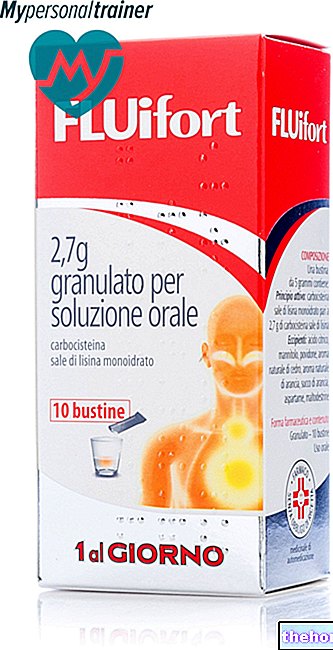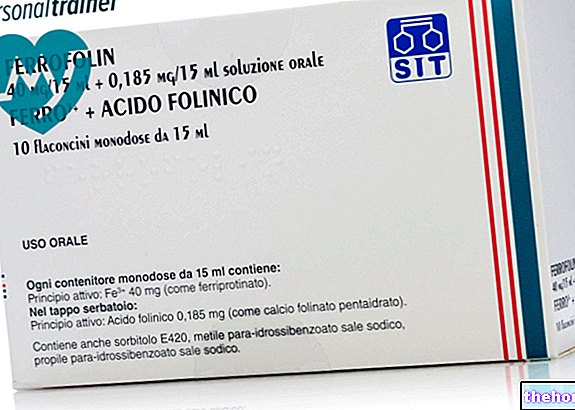Active ingredients: Alizapride (Alizapride hydrochloride)
LIMICAN 50 mg tablets
Limican package inserts are available for pack sizes:- LIMICAN 50 mg tablets
- LIMICAN 50 mg / 2 ml solution for injection
Indications Why is Limican used? What is it for?
LIMICAN contains the active substance alizapride hydrochloride which belongs to a group of medicines called antiemetics, which work by reducing nausea and vomiting.
This medicine is indicated for the treatment of vomiting and nausea caused by various factors and before or after surgery (pre and post-operative).
LIMICAN is not indicated for reducing vomiting that occurs during pregnancy (pregnancy vomiting).
Contraindications When Limican should not be used
Do not take LIMICAN
- if you are allergic to alizapride hydrochloride or any of the other ingredients of this medicine (listed in section 6);
- if you have experienced movement problems (tardive dyskinesic reactions) in the past when taking medicines to treat certain mental disorders (neuroleptics);
- if you have a tumor of the adrenal gland (pheochromocytoma with certain or suspected diagnosis), as a sudden increase in blood pressure (hypertensive crisis) may occur;
- if you are taking levodopa, to treat Parkinson's disease (See section "Other medicines and LIMICAN");
- if you are pregnant (See "Pregnancy and breastfeeding" section).
Precautions for use What you need to know before taking Limican
Talk to your doctor or pharmacist before taking LIMICAN.
Do not take this medicine for more than 7 days.
If you have severe kidney problems (severe kidney failure), your doctor should reduce the dose of medicine to be taken (See section "How to take LIMICAN").
LIMICAN is not recommended if you suffer from epilepsy, as it can facilitate the onset of seizures.
Stop the treatment and tell your doctor immediately if you experience fever (hyperthermia), as it can be a symptom of Neuroleptic Malignant Syndrome, a serious disease also characterized by movement disorders (extrapyramidal symptoms), problems with the heart, muscles, glands ( instability of the autonomic system) and alteration of some laboratory tests (elevated CPK).
Interactions Which drugs or foods can modify the effect of Limican
Tell your doctor or pharmacist if you are taking, have recently taken or might take any other medicines.
Do not take LIMICAN if you are taking levodopa, used to treat Parkinson's disease, as a reduction in the effects of both medicines (mutual antagonism) may occur.
Take LIMICAN with caution and tell your doctor if you are taking the following medicines:
- neuroleptics, morphine derivatives, hypnotics, anxiolytics, anti-H1 antihistamines, antidepressants, barbiturates, clonidine which slow down the activity of the brain, as LIMICAN increases its effects;
- anticholinergics used to treat irritable bowel syndrome, asthma and incontinence, as they can reduce the effectiveness of LIMICAN;
- digoxin used to treat certain heart disorders. In this case, the doctor must closely monitor the levels of digoxin in the blood (digoxinaemia);
- antihypertensives used to treat high blood pressure.
LIMICAN with alcohol
Alcohol may potentiate the depressant effects of LIMICAN when taken at the same time. Therefore, avoid drinking alcoholic beverages while taking this medicine.
Warnings It is important to know that:
Pregnancy and breastfeeding
If you are pregnant, think you may be pregnant or are planning to have a baby, or if you are breast-feeding, ask your doctor or pharmacist for advice before taking this medicine.
Do not take LIMICAN if you are pregnant (See section "Do not take LIMICAN").
If you are breastfeeding, ask your doctor for advice who will decide whether to stop breastfeeding or to stop using LIMICAN.
Driving and using machines
This medicine can cause drowsiness. Therefore, avoid driving vehicles or using machines.
LIMICAN contains lactose
This medicine contains lactose, a type of sugar. If you have been told by your doctor that you have "intolerance to some sugars, contact your doctor before taking this medicinal product.
Dose, Method and Time of Administration How to use Limican: Posology
Always take this medicine exactly as your doctor or pharmacist has told you. If in doubt, consult your doctor or pharmacist.
The recommended dose is 2-4 tablets (100-200 mg) per day, to be taken in several doses throughout the day.
Use in people with severe kidney problems
If you have severe kidney problems (severe kidney failure), please tell your doctor as it is necessary to reduce the dose of medicine to be taken.
If you forget to take LIMICAN
Do not take a double dose to make up for a forgotten tablet.
If you have any further questions on the use of this medicine, ask your doctor or pharmacist.
Overdose What to do if you have taken too much Limican
Movement disturbances (extrapyramidal symptoms) and drowsiness may occur if you take too much of this medicine.
In case of accidental ingestion / intake of an overdose of LIMICAN, notify your doctor immediately or go to the nearest hospital.
Side Effects What are the side effects of Limican
Like all medicines, this medicine can cause side effects, although not everybody gets them.
The following side effects may occur:
Frequency not known (the frequency of which cannot be estimated from the available data):
- extrapyramidal symptoms such as difficulty moving (acute dystonia), jerky movements (dyskinesia), symptoms typical of Parkinson's disease (parkinsonian syndrome), motor restlessness (akathisia), especially in children and young people. These symptoms disappear upon discontinuation of treatment;
- persistent tardive dyskinesia, a condition characterized by rhythmic and uncontrollable movements, mainly of the tongue, lips and face, especially if you take this medicine for a long time or if you are elderly;
- sleepiness, dizziness, headache (headache), inability to sleep (insomnia);
- diarrhea, flatulence (bloating);
- absence of menstruation (amenorrhea), sudden production of milk (galactorrhea), development of breasts in men (gynecomastia), increased levels of a hormone called prolactin in the blood (hyperprolactinaemia);
- feeling dizzy when standing up, due to a rapid fall in blood pressure (orthostatic hypotension), which occurs if you take high doses of the medicine.
Reporting of side effects
If you get any side effects, talk to your doctor or pharmacist. This includes any possible side effects not listed in this leaflet. You can also report side effects directly via the national reporting system at www.agenziafarmaco.gov.it/it/responsabili. By reporting side effects you can help provide more information on the safety of this medicine.
Expiry and Retention
Keep this medicine out of the sight and reach of children.
Do not use this medicine after the expiry date which is stated on the package after "EXP".
The expiry date refers to the last day of that month, to the product in intact and correctly stored packaging.
This medicine does not require any special storage conditions.
Do not throw any medicines via wastewater or household waste. Ask your pharmacist how to throw away medicines you no longer use. This will help protect the environment.
Deadline "> Other information
What LIMICAN contains
- The active ingredient is alizapride hydrochloride. Each tablet contains 55.8 mg of alizapride hydrochloride (equivalent to 50 mg of alizapride).
- The other ingredients are: starch, lactose, silica, methylcellulose 1500 Cps, talc, magnesium stearate.
What LIMICAN looks like and contents of the pack
Box of 20 tablets.
Source Package Leaflet: AIFA (Italian Medicines Agency). Content published in January 2016. The information present may not be up-to-date.
To have access to the most up-to-date version, it is advisable to access the AIFA (Italian Medicines Agency) website. Disclaimer and useful information.
01.0 NAME OF THE MEDICINAL PRODUCT -
LIMICAN
02.0 QUALITATIVE AND QUANTITATIVE COMPOSITION -
One tablet contains: alizapride hydrochloride 55.80 mg equivalent to 50 mg of alizapride.
One ampoule of solution for injection contains: alizapride hydrochloride 55.80 mg equivalent to 50 mg of alizapride.
For the full list of excipients, see section 6.1.
03.0 PHARMACEUTICAL FORM -
Tablets.
Injectable solution.
04.0 CLINICAL INFORMATION -
04.1 Therapeutic indications -
Limican is indicated for the symptomatic treatment of vomiting and nausea of various origins, including pre and post-operative vomiting and nausea, with the exception of pregnancy vomiting.
For the treatment of vomiting and nausea in relation to antimitotic therapy (cytostatic, antiblastic, radiation therapy) and to surgical interventions, the use of the injectable solution is recommended.
04.2 Posology and method of administration -
Oral administration: 2-4 tablets per day (100-200 mg of alizapride) in divided doses, unless otherwise prescribed.
Parenteral administration: In the pre- or post-operative vomiting and nausea, 1-4 ampoules (50-200 mg of alizapride), generally intramuscularly, within 24 hours, unless otherwise prescribed. If necessary, treatment can be continued orally.
In nausea and In the vomiting during antiblastic chemotherapy: 2 ampoules (100 mg of alizapride) intravenously 20-30 minutes before the chemotherapy treatment, followed by 1-2 ampoules (50-100 mg of alizapride) intramuscularly 4-8 hours after the end of the chemotherapy treatment.
In case of severe and persistent symptoms due to chemotherapy, the daily dosage of Limican can be increased up to 4 intravenous ampoules 30 minutes before chemotherapy treatment, 4 intravenous ampoules during this treatment and up to 8 intravenous ampoules. intravenous or intramuscular, at the rate of 2 ampoules every 4 hours after the end of the chemotherapy treatment, in relation to the intensity and frequency of vomiting.
In children undergoing chemotherapy treatment, the recommended dosage is 2-5 mg / kg / day intravenously or intramuscularly.
04.3 Contraindications -
Limican is contraidicated in the following conditions:
• Hypersensitivity to the active substance or to any of the excipients.
• Patients with a history of late dyskinetic reactions to neuroleptics.
• Patients with pheochromocytoma with certain or suspected diagnosis: severe hypertensive crises have been reported in patients with pheochromocytoma treated with anti-dopaminergic drugs (including benzamides).
• Patients on levodopa treatment, due to mutual antagonism.
• Pregnancy (see section 4.6).
04.4 Special warnings and appropriate precautions for use -
It is advisable not to exceed a continuous treatment for more than seven days.
The dosage should be reduced in case of severe renal insufficiency.
Do not drink alcoholic beverages while taking alizapride.
Alizapride is not recommended in epileptic patients as benzamides may decrease the seizure threshold.
As with other neuroleptics, Neuroleptic Malignant Syndrome (NMS), characterized by hyperthermia, extrapyramidal disorders, instability of the autonomic nervous system, elevated CPK, can occur during treatment with alizapride. Therefore, caution should be exercised in the event of the onset of hyperthermia, one of the symptoms of NMS, and in this case treatment should be discontinued.
04.5 Interactions with other medicinal products and other forms of interaction -
The following drug combinations are contraindicated during treatment with alizapride:
Levodopa: mutual antagonism between levodopa and neuroleptics.
Alcohol: potentiation of the sedative effect of alizapride.
The following drug combinations require special attention from the physician:
Central nervous system sedatives (neuroleptics, morphine derivatives, hypnotics, anxiolytics, anti-H1 antihistamines, antidepressants, barbiturates, clonidine and related): the effects of sedatives on the Central Nervous System and of alizapride are potentiated.
Anticholinergics: concomitant administration may decrease the effects of alizapride.
Digoxin: Caution should also be exercised in patients treated concomitantly with digoxin, for whom monitoring of digoxin is advised.
Antihypertensives.
04.6 Pregnancy and breastfeeding -
For alizapride, no clinical data on exposed pregnancies are available.
Animal studies do not indicate direct or indirect harmful effects with respect to pregnancy, embryonal / fetal development, parturition or postnatal development (see 5.3).
Caution should be exercised when prescribing the medicine to pregnant women.
It is not known whether alizapride is excreted in human milk. The excretion of alizapride in milk has not been studied in animals.A decision to continue or discontinue breast-feeding or to continue / discontinue Limican administration must be made taking into account the benefit to the infant of breastfeeding and the benefit of Limican therapy to the mother.
04.7 Effects on ability to drive and use machines -
Limican affects the ability to drive or use machines.
04.8 Undesirable effects -
The following undesirable effects have been observed, particularly in the case of high doses (within each class, undesirable effects are reported in descending order of frequency):
Alterations of the nervous system
- Extrapyramidal symptoms (acute dystonia and dyskinesia, parkinsonian syndrome, akathisia) especially in children and young people, even after a single administration of the product.
These reactions usually cease spontaneously and permanently after discontinuation of treatment.
- Persistent tardive dyskinesia, in case of prolonged treatment, especially in elderly patients.
- Somnolence, dizziness, headache, insomnia.
Alterations of the gastrointestinal system
Diarrhea, bloating.
Alterations of the endocrine system
Amenorrhea, galactorrhea, gynecomastia, hyperprolactinaemia.
General disorders and changes in the administration site
Allergic reactions including anaphylaxis.
After intravenous administration, vasomotor redness (profuse sweating and / or skin burning sensation) has been reported and rapidly resolved. Patients should be informed of the minor nature of these symptoms which do not require any special treatment.
After injection of LIMICAN phenomena such as asthenia and / or dry mouth have been observed.
Alterations of the vascular system
Orthostatic hypotension may occur in high doses.
04.9 Overdose -
In the event of an overdose, extrapyramidal disorders and somnolence may occur.
Muscle relaxants (eg benzodiazepines) and / or anticholinergic antiparkinsonian drugs (the latter only in adults) can be used as antidotes.
05.0 PHARMACOLOGICAL PROPERTIES -
05.1 "Pharmacodynamic properties -
Pharmacotherapeutic group: antiemetic.
ATC code: A03FA05.
The activity of alizapride is carried out selectively by raising the sensitivity threshold of the bulbar center of vomiting: this results in a rapid decrease in the phenomena of nausea and vomiting due to stimulation of the bulbar center.
Therefore alizapride proves to be particularly active in clinical situations characterized by nausea and vomiting in particular in nausea and vomiting of organic or functional etiology or consequent to antimitotic therapy and surgical situations.
Alizapride has no action on cholinergic neurotransmission.
05.2 "Pharmacokinetic properties -
Alizapride is well absorbed orally; bioavailability is between 70 and 87%.
The elimination half-life of alizapride is approximately three hours; elimination occurs mainly via the urine in unchanged form.
Transplacental passage in the rabbit is very poor. Passage across the blood brain barrier is limited.
05.3 Preclinical safety data -
Non-clinical data reveal no special hazard for humans based on conventional studies of safety pharmacology, repeated dose toxicity, genotoxicity, carcinogenic potential, reproductive toxicity.
06.0 PHARMACEUTICAL INFORMATION -
06.1 Excipients -
Tablets:
starch, lactose, silica, methylcellulose 1500 Cps, talc, magnesium stearate.
Injectable solution:
sodium chloride, water for injections.
06.2 Incompatibility "-
No cases of incompatibility have been reported.
06.3 Period of validity "-
5 years.
06.4 Special precautions for storage -
This medicinal product does not require any special storage conditions.
06.5 Nature of the immediate packaging and contents of the package -
- LIMICAN 50 mg tablets: Box of 20 tablets in non-toxic blister packs consisting of polyvinyl chloride and heat-sealing aluminum for polyvinyl chloride.
- LIMICAN 50 mg / 2 ml solution for injection: Box of 6 vials of 2 ml with pre-opening and LIMICAN silkscreened in white.
06.6 Instructions for use and handling -
No special instructions.
07.0 HOLDER OF THE "MARKETING AUTHORIZATION" -
ACARPIA Farmaceutici srl
via Vivaio, 17
20122 MILAN (ITALY)
08.0 MARKETING AUTHORIZATION NUMBER -
LIMICAN 50 mg tablets: 20 tablets - AIC n. 025575010
LIMICAN 50 mg / 2 ml solution for injection: 6 ampoules - AIC n. 025575034
09.0 DATE OF FIRST AUTHORIZATION OR RENEWAL OF THE AUTHORIZATION -
Renewal: 01.06.2010
10.0 DATE OF REVISION OF THE TEXT -
06/2010




























